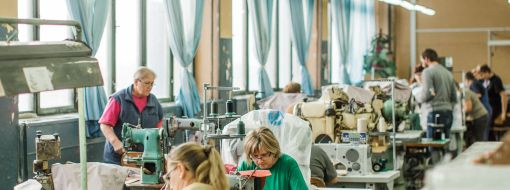

The company Novesta a.s. itself is a successor of a long tradition of a shoe production dating back to 1939. During several decades, the factory produced footwear for military or work, such as rubber boots and running shoes. The company also supplied products and semi-products for major brands as an OEM supplier.
Novesta's story in Japan started in September 2013 when Yusuke Koishi from the company Kleinstein (a Japanese design consulting company), which is now in charge of Novesta's in-Japan distribution and creative strategy, addressed Novesta team. At that time, Koishi was a staff member of the Comme des Garçon - a global fashion brand based in Japan. Comme des Garçon asked Novesta to produce shoes on an OEM basis and the collaboration began. For Novesta it was the first cooperation with a globally famous brand. Three years later - in 2016 - Kleinstein started to support the creative direction of Novesta.
The models produced in a business co-operation rolled out worldwide and the brand gradually began to attract attention in the market. Today, there are more than 70 stores that offer the brand in Japan (including the Isetan Shinjuku department store) and over 250 globally.
Novesta and its partner Kleinstein consider that Novesta brand has a strong potential due to its uniqueness and a vertically integrated production system from rubber to shoes with vulcanisation facility. The key to Novesta's success is a focusing on a combination of quality and aesthetics. The cooperation between Novesta and Kleinstein also contributed to a better knowing of Slovak culture in Japan. For example, Novesta conveys the Slovak aesthetics and culture through collaborations with Slovak artists - such as Martin Kollar - a famous contemporary photographer based in Bratislava.
Source: Embassy of the Slovak Republic in Japan
The EU-Japan Centre currently produces 5 newsletters :










Joint venture established in 1987 by the European Commission (DG GROW) and the Japanese Government (METI) for promoting all forms of industrial, trade and investment cooperation between the EU and Japan.
The EU-Japan Centre’s activities are subject to the allocation of a Grant Agreement by the European Commission for 2024-2026

